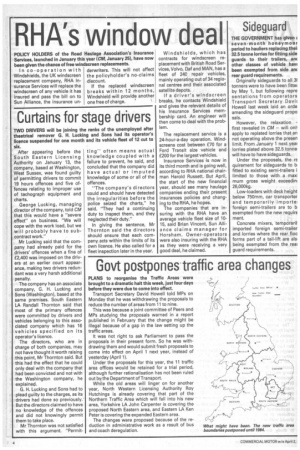Curtains for stage drivers
Page 6

If you've noticed an error in this article please click here to report it so we can fix it.
TWO DRIVERS will be joining the ranks of the unemployed after theatrical remover G. H. Lucking and Sons had its operator's licence suspended for one month and its vehicle fleet of 12 cut to six.
After appearing before the South Eastern Licensing Authority on January 13, the company, based at Washington, West Sussex, was found guilty of permitting drivers to commit 19 hours offences and five offences relating to improper use of tachograph equipment and charts.
George Lucking, managing director of the company, told CM that this would have a "severe effect" on business. "We will cope with the work load, but we will probably have to subcontract work."
Mr Lucking said that the company had already paid for the drivers' offences when a fine of £2,400 was imposed on the driv ers at an earlier court appearance, making two drivers redundant was a very harsh additional penalty.
The company has an associate company, G. H. Lucking and Sons (Washington), based at the same premises. South Eastern LA Randall Thornton said that most of the primary offences were committed by drivers and vehicles belonging to this associated company which has 16 vehicles specified on its operator's licence.
The directors, who are in charge of both companies, may not have thought it worth raising this point, Mr Thornton said. But this had the effect that he could only deal with the company that had been convicted and not with the Washington company, he explained.
G. H. Lucking and Sons had to plead guilty to the charges, as its drivers had done so previously. But the directors claimed to have no knowledge of the offences and did not knowingly permit them to take place.
Mr Thornton was not satisfied with this argument. "Permit ting" often means actual knowledge coupled with a failure to prevent, he said, and concluded that the company did have actual or imputed knowledge of some or all of the offences.
"The company's directors could and should have detected the irregularities before the police seized the charts," he said. "They had a continuing duty to inspect them, and they neglected their duty."
In giving the sentence, Mr Thornton said the directors should ensure that each company, acts within the limits of its own licence. He also called for a fleet inspection later in the year.












































































